Core team members
Vojtěch Brlík
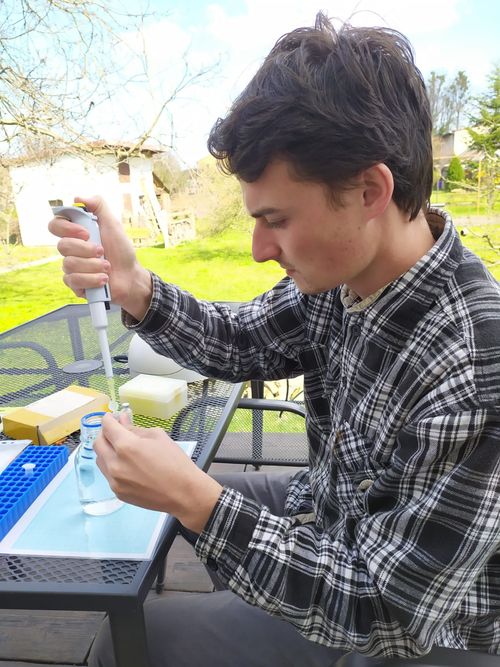
Vojtech is an ecologist interested in various aspects of bird migration. His scientific journey started by studying migratory divide in the Eurasian Reed Warbler using light-level geolocators and stable isotopes. He also published a meta-analysis of the effects of geolocators on birds during his BSc and he again used a combination of geolocators and stable isotopes to uncover the most important seasonal interactions in the Great Reed Warbler during his MSc. Currently, he is a PhD student at the Department of Ecology, Charles University and works at the Institute of Vertebrate Biology, Czech Academy of Sciences. In his dissertation, Vojtech focuses on the year-round specialization of migratory birds, develops continental isotopic maps, and coordinates the AviSample Network project.
As a project coordinator and one of the European AviSample Network ambassadors, Vojtech is a main contact person regarding all sorts of questions (first check FAQ please), a person responsible for contacting researchers with a request to store their sample descriptions in the AviSample Network database, and a person responsible for promotion of the project at various scientific meetings.
Pavel Pipek

Pavel is an ecologist interested in biological invasions, animal communication & behaviour and citizen-science. He started his masters studying antipredatory behaviour of true bugs (“flash displays”) but all his interests (including his child dream to be a historian) met later in the citizen-science project Yellowhammer Dialects (http://yellowhammers.net), the aim of which was to study the cultural evolution of yellowhammer song 150 years after the introduction to New Zealand. He is currently working at Institute of Botany, Czech Academy of Sciences and Department of Ecology, Charles University, mainly on follow-up project (history of avian invasions to New Zealand) and other topics concerning biological invasions.
Especially during his work on citizen-science projects Pavel gathered some expertise on web development and that is how he joined AviSample Network. As an administrator of the website, Pavel is the main contact person for all issues related to the website functioning.
Petr Procházka

Petr is an avian ecologist based at the Institute of Vertebrate Biology, Czech Academy of Sciences https://www.ivb.cz/en/. His interests centre on bird ecology, bird migration and behavioural ecology. During his pre-graduate studies at Charles University in Prague, he investigated Acrocephalus warblers and this group soon became his favourite study object. Later on, he moved to Brno where he has been researching various adaptations and counter-adaptations in the common cuckoo and its hosts. As a keen bird ringer, he has been also interested in bird migration and this led him to the use of stable isotopes as a tool to infer origins and non-breeding ecology of migratory birds.
Petr has been involved in the project right from the start and he is the ambassador of AviSample Network in Central and Eastern Europe.
AviSample Network ambassadors
Kate J. Brandis

Kate is a Senior Research Fellow at the University of New South Wales, Sydney, Australia. She is the lead researcher of the Feather Map of Australia project (www.ansto.gov.au/feathermap) which combines citizen science and laboratory-based research to understand the movement patterns of Australia's waterbirds. This information is then used to inform wetland and water policy development and water management decisions. She is also a colonial waterbird ecologist, working in the floodplain wetlands of inland Australia measuring reproductive success in relation to water and wetland management. Kate is a member of the IUCN Species Specialist Group for Stork, Ibis and Spoonbills. Her other research focuses on wildlife forensics and its application to the illegal wildlife trade - including birds.
Kate is the AviSample Network ambassador for Australia.
Nikita Chernetsov
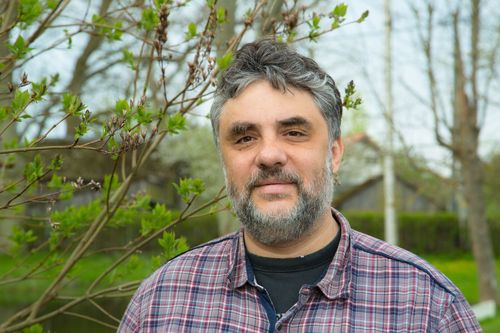
Nikita is the director of the Zoological Institute of the Russian Academy of Sciences in St. Petersburg, Russia, and the head of its Ornithology Lab. The Zoological Institute maintains a very rich collection of avian specimens, of which tissue samples make a small fraction.
Nikita is the AviSample Network ambassador for Russia.
Fábio J.V. Costa
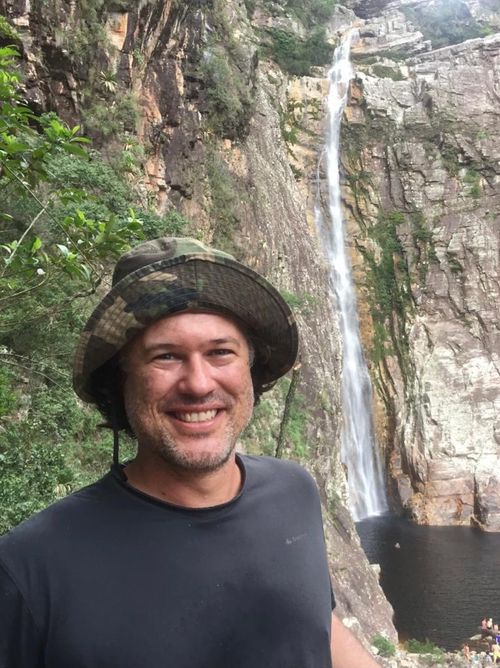
Fábio is a Forensic Expert interested in wildlife illegal trade. He uses morphological identification, but especially intrinsic markers, as indicators of the geographical origin of seized birds in Brazil. He started his scientific career studying the sexual selection of the Blue-black Grassquit. For almost two decades he has been making crime forensic reports (mainly about Brazilian wildlife) to the Brazilian Federal Police, his current job. More recently, after his doctoral thesis, applying the use of stable isotopes as a forensic tool in his job. As a researcher, Fábio keeps working with intrinsic markers, especially the stable isotopes, building forensic tools for applications in wildlife illegal trade and other crimes enforcement.
Fábio is the AviSample Network ambassador for South America, mainly Brazil.
L. Gerardo Herrera Montalvo
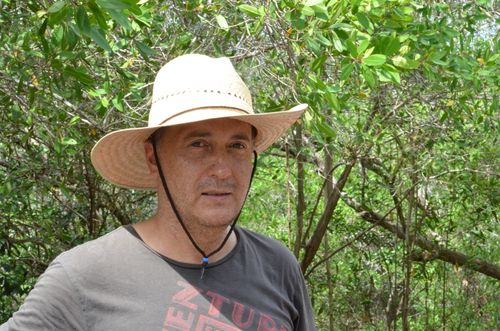
Gerardo is a research professor at the Institute of Biology of the National Autonomous University of Mexico. He has been using stable isotope analysis for over two decades to unveil ecological patterns in avian communities in Mexican deserts and tropical forests.
Gerardo is the AviSample Network ambassador for Central America, mainly Mexico.
Yosef Kiat
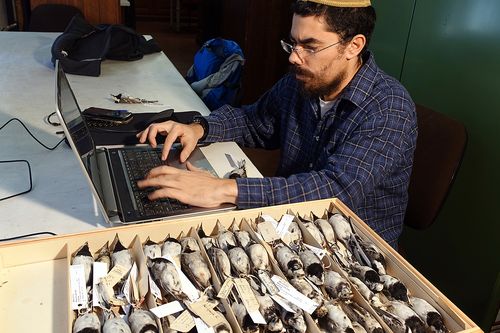
Yosef is a zoologist and bird-ringer interested in ecology and evolution of plumages and moulting, and head of the Israeli Bird Ringing Center (IBRC).
Yosef is the AviSample Network ambassador for Israel.
Richard B. Lanctot

Richard works with shorebirds as part of the Migratory Bird Management Division in the U.S. Fish and Wildlife Service in Anchorage, Alaska. He studies the breeding, migration, and wintering ecology of shorebirds in Alaska but also throughout the Americas and the East Asian-Australasian Flyway. He has collected a large sample of feathers from a variety of shorebird species.
Richard is the AviSample Network ambassador for shorebirds and North America.
Peter P. Marra

Pete is the Director of the Georgetown Environmental Initiative (GEI), Laudato Si’ Professor in Biology and the Environment, and Professor in the McCourt School of Public Policy. Pete went to Georgetown University after a 20-year career at the Smithsonian Institution, most recently as Director of the Migratory Bird Center. Pete has tried to understand the full annual cycles of birds with anything he possibly can from stable isotopes to geolocators to satellite tags. He co-edited Birds of Two Worlds and recently published a second book with buddy Chris Santella - Cat Wars: The Devastating Consequences of Cuddly Killer. Pete is married, has two kids, is an avid fisherman, a gardener and cook.....and a reluctantly retired ultimate frisbee player.
Pete is the AviSample Network ambassador for North America.
Chima J. Nwaogu
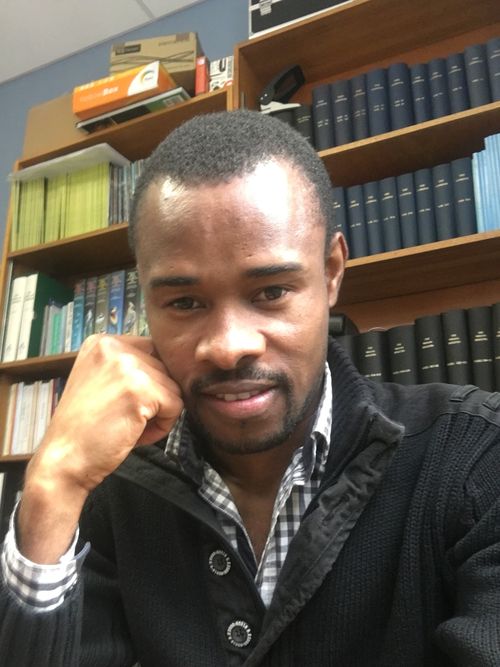
Chima is a postdoctoral research fellow at the FitzPatrick Institute of African Ornithology, University of Cape Town, South Africa and a Research Associate at the A. P. Leventis Ornithological Research Institute, Nigeria. He investigates the life history traits of tropical savannah birds, including variation in their immune function, body mass, timing of breeding and moult.
Chima is the AviSample Network ambassador for West Africa.
Petra Quillfeldt

Petra is professor for Behavioural Ecology at the Justus Liebig University Giessen, Germany, and vice president of the German Ornithological Society DO-G. She works on a variety of birds, with special focus on small petrels and polar regions.
Petra is the AviSample Network ambassador for Germany and the Southern Ocean.
Sarah T. Saalfeld

Sarah works with shorebirds as part of the Migratory Bird Management Division in the U.S. Fish and Wildlife Service in Anchorage, Alaska. She studies the breeding, migration, and wintering ecology of shorebirds in Alaska but also throughout the Americas and the East Asian-Australasian Flyway. She has collected a large sample of feathers from a variety of shorebird species.
Sarah is the AviSample Network ambassador for shorebirds and North America.
Craig A. Stricker

Craig is an ecologist that specializes in the application of stable isotope tracers to better understand ecosystem structure and function, including the nutritional ecology and biogeography of terrestrial and aquatic wildlife. He has been a principal investigator in the U.S. Geological Survey’s stable isotope laboratory in Denver, Colorado for nearly twenty years. Craig also serves in a sub-committee capacity for IsoBank, a repository in development for stable isotope data.
Robert L. Thomson

Robert is a Senior Lecturer at the FitzPatrick Institute of African Ornithology, University of Cape Town, South Africa, where he also coordinates SAFRING (The South African Bird Ringing Unit) and is involved with the Southern African Bird Atlas project. Robert has a broad interest in bird ecology, but is especially interested in between-species interactions, and recently more involved in conservation biology related research.
Robert is the AviSample Network ambassador for Southern Africa.
Tianhao Zhao
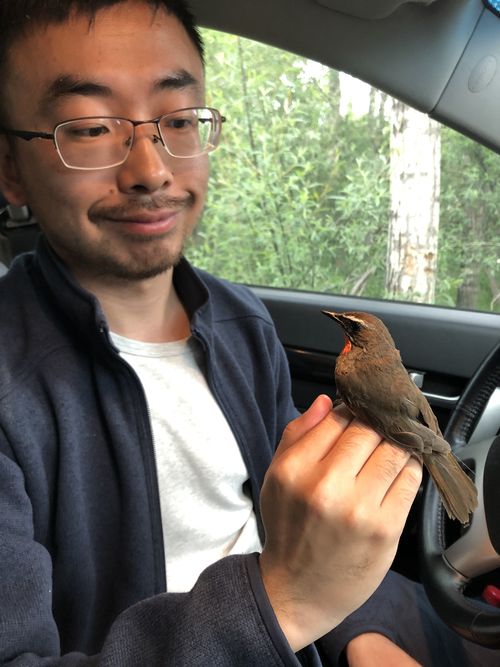
Tianhao is doing his PhD study at University of Groningen. His main interest is to unravel the migration pattern, both phenotypically and genetically, of two passerine taxa (Calliope calliope/tschebaiewi and Saxicola maurus/stejnegeri) which utilize the western China flyway for migration, where complex and harsh geographical barriers (e.g. Qinghai-Tibetan Plateau) demand highly adaptive strategies of the migrants. He mainly uses various micro tracking devices, in combination with stable isotopes, Emlen tunnel tests and genetic markers to describe the migration patterns. He is also interested in unraveling the genetic basis of migratory divide and the migration plasticity in a long term. His main geographical range is east-central Asia flyway, mainly on Qinghai-Tibetan Plateau and SW China.
Tianhao is the AviSample Network ambassador for East Asia, mainly China.